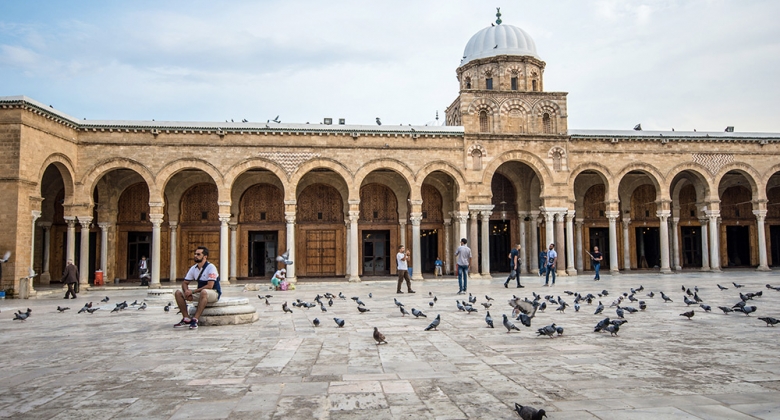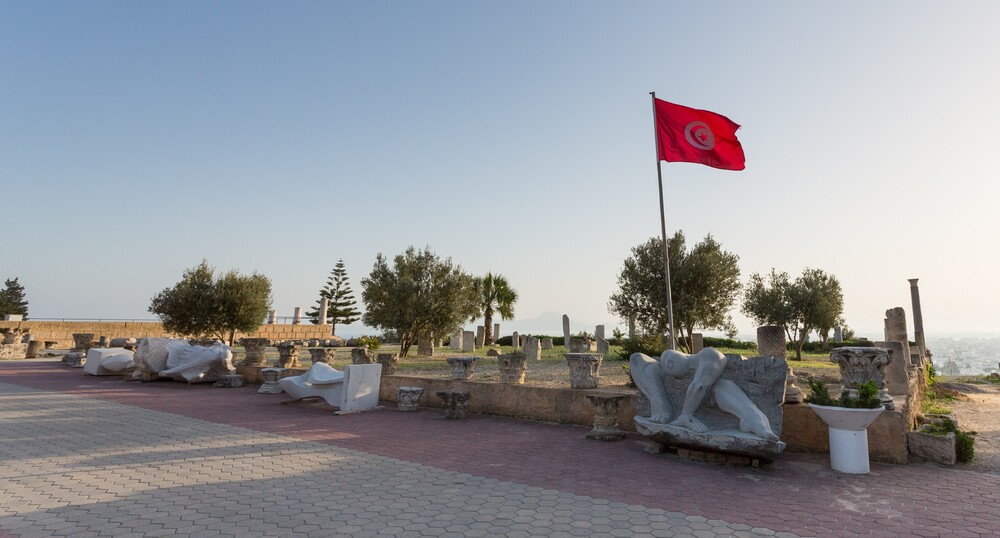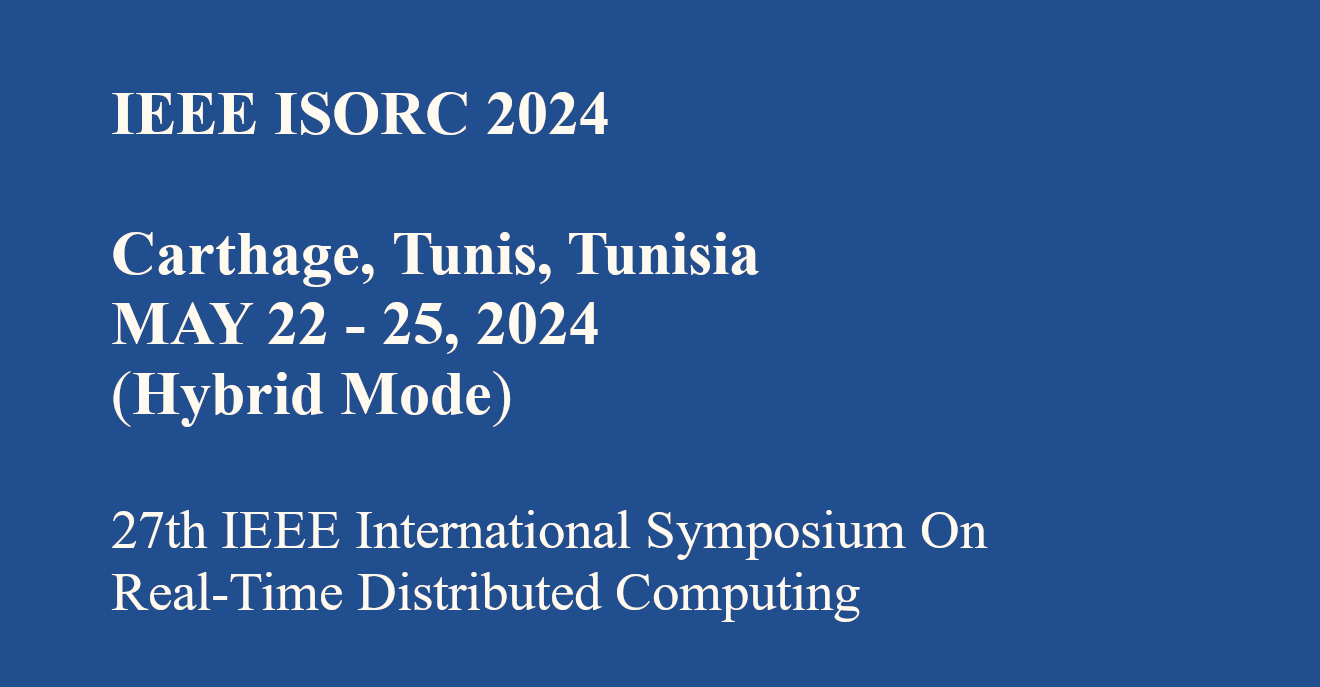






















ISORC has become established as the leading event devoted to state-of-the-art research in the field of object/component/service-oriented real-time distributed computing (ORC) technology. In addition to the main conference, ISORC 2024 will host a special session dedicated to posters and demos, where participants will be able to show prototypes, tools, simulators, and systems that demonstrate the applicability of real-time computing to different applications.
The IEEE ISORC 2024 conference seeks tutorial proposals, which should provide clear and focused teaching materials covering
hot and emerging topics that are within the scope of the conference, which include:
- Software Architectures for Real-Time Distributed Computing.
- Distributed Real-Time Image, Video, and Stream Processing.
- Distributed Communication for Emerging and Future Networks.
- Blockchain and Distributed Ledger Technology (DLT) for Distributed Computing.
- AI/ML, LLM, and Federated Learning for Real-Time Distributed Computing.
- Digital Twin for Future Networks and Emerging IoT Applications.
- Cybersecurity and Trust for Distributed Real-Time IoT Systems.
- Optimization Approaches for Distributed Real-Time Computing in The Context of IoT, Cyber-Physical Systems (CPS), and Edge-Cloud Continuum.
- Sustainable and Green Computing Transformation in Edge-to-Cloud Continuum.
- Formal Verification and Model Checking for Distributed Real-Time IoT, CPS, and Cloud.
- Ontology-Based Knowledge Modelling for Real-Time Distributed IoT & CPS.
- Dependability, Fault Tolerance, and Resilience of Distributed Real-Time IoT.
- Big Data, Algorithms, Models, and Techniques for Real-Time Analytics.
- Operating Systems, Middleware, and System Software.
- Distributed Management, Monitoring, and Performance Evaluation.
- Applications for IoT, CPS, Edge-Cloud, Distributed Embedded Computing.
- Tutorial Proposal Submission: February 28, 2024
- Notification of Acceptance: March 20, 2024
- Tutorial material: May 12, 2024
- Presentation: May 22-25, 2024
An IEEE ISORC 2024 tutorial proposal should be submitted in a single PDF file (4 pages max)
and must include the following all the required details in the Tutorial Proposal Form below
and submit it to the Tutorial Program Co-Chairs.
- Tutorial Proposal Form PDF Format
- Tutorial Proposal Form Word Format
- Thierry Gayraud, University of Toulouse 3, France
- Martin Schoeberl, Denmark Technical University, Denmark
- Eric Hutter, Provadis School of International Management & Technology AG, Frankfurt, Germany
